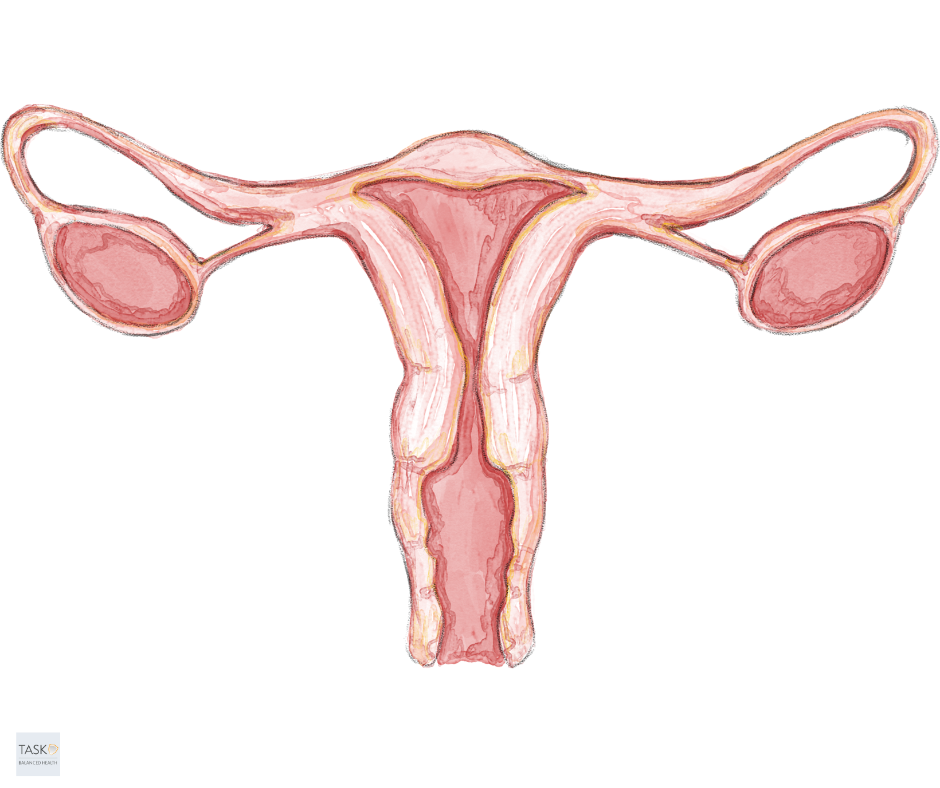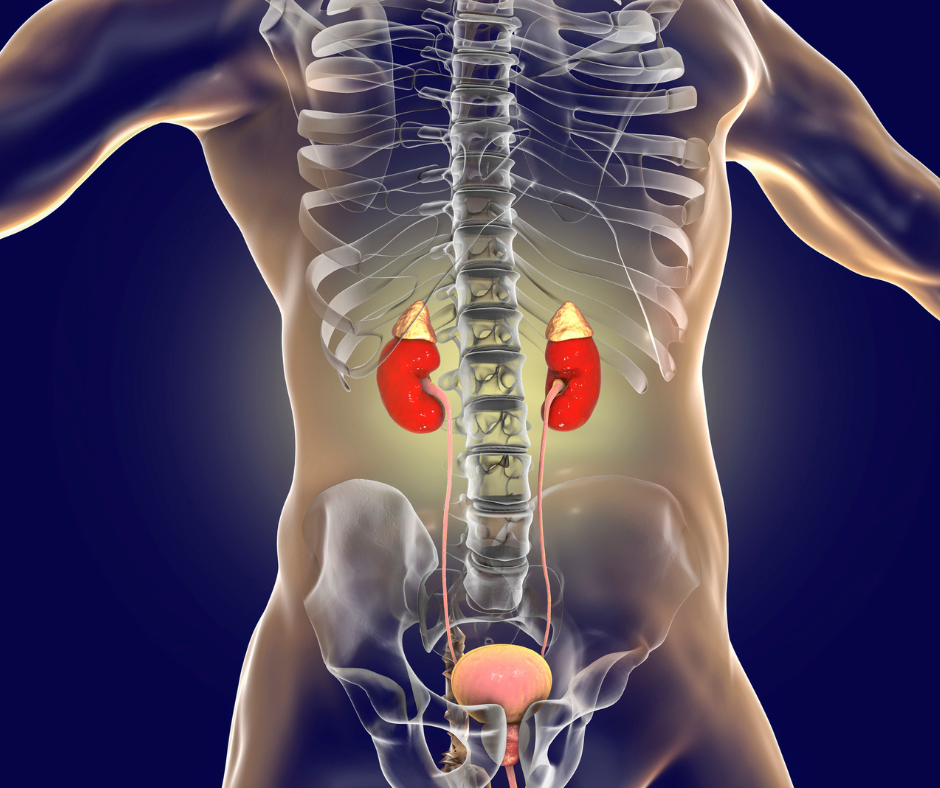I have many women coming through the clinic that know very little about peri-menopause/menopause and how it affects their bodies. It’s encouraging to see that menopause has become a prominent subject in the media, gaining the attention it deserves and educating women on this natural process. However, much of the time the only solution offered by the Dr for symptoms is HRT or anti-depressants. However, Systematic Kinesiology offers natural, wholistic support for peri-menopause, menopause, and beyond to help women navigate the natural change, helping them to thrive and enjoy life.

How do the ovaries change during peri-menopause/menopause?
Perimenopause is the transitional phase leading up to menopause, marking the gradual decline in ovarian function and the eventual cessation of menstruation. During perimenopause, which typically starts in the late 30s or early 40s but can vary for each woman, the ovaries undergo several changes:
- Fluctuating Hormone Levels: The most noticeable change is the fluctuation in hormone levels, particularly estrogen and progesterone. These fluctuations can lead to irregular menstrual cycles, with periods becoming shorter or longer, and varying in intensity.
- Decreased Ovulation: Ovulation becomes less predictable, and there may be cycles where ovulation doesn’t occur. This irregularity contributes to the variability in menstrual cycles during perimenopause.
- Decline in Egg Quantity and Quality: The number and quality of eggs (ova) in the ovaries decrease during perimenopause. This decline is a natural part of the aging process and contributes to the overall reduction in fertility.
- Symptoms of Hormonal Changes: Women may experience symptoms such as hot flushes, night sweats, mood swings, and changes in libido due to the hormonal fluctuations during perimenopause. These symptoms are a result of the ovaries responding differently to the hormonal signals from the brain.
- Follicle-Stimulating Hormone (FSH) Levels: FSH levels tend to rise during perimenopause. FSH plays a crucial role in stimulating the ovaries to produce estrogen and prepare the body for ovulation. Elevated FSH levels can be an indication of the ovaries’ decreased responsiveness to hormonal signals.
- Ovarian Atrophy: Over time, the ovaries may undergo atrophy, shrinking in size. This is a natural consequence of the decreased ovarian activity and hormonal changes.
- Menstrual Irregularities: Menstrual cycles may become more unpredictable during perimenopause, with variations in the length of the menstrual cycle and changes in the amount of menstrual flow. Eventually, menstruation ceases altogether, marking the onset of menopause.

What role do the adrenal glands play in peri-menopause/menopause?
During perimenopause, the adrenal glands play a crucial role in supporting the hormonal changes that occur as a woman transitions toward menopause. The adrenal glands, located on top of each kidney, produce hormones that contribute to overall hormonal balance, especially in response to changes in ovarian function. Here’s how the adrenal glands are involved during perimenopause:
- Cortisol Production: The adrenal glands produce cortisol, a hormone involved in stress response and the regulation of metabolism. As women go through perimenopause, the fluctuating levels of oestrogen and progesterone can influence cortisol production. Stress management becomes particularly important during this time, as high stress levels can impact the overall hormonal balance.
- Androgen Production: The adrenal glands also produce small amounts of androgens, which are precursors to estrogen. As ovarian estrogen production declines during perimenopause, the contribution of androgens from the adrenal glands becomes relatively more significant in maintaining overall estrogen levels.
- Supporting Hormonal Balance: The adrenal glands work in conjunction with the ovaries to help maintain hormonal balance. They play a compensatory role by producing hormones that help mitigate the effects of declining ovarian function. However, excessive stress and demands on the adrenal glands can potentially lead to imbalances in sex hormones.
- Impact on Menopausal Symptoms: Chronic stress can exacerbate menopausal symptoms such as hot flushes, mood swings, and sleep disturbances. The adrenal glands, when under constant stress, may prioritize cortisol production over sex hormone production, potentially contributing to hormonal imbalances.
- Fatigue and Energy Levels: Adrenal function is closely linked to energy levels and fatigue. Women going through perimenopause may experience fatigue, and the adrenal glands are part of the complex interplay influencing overall energy balance during this life stage.
- Coping with Stress: The ability of the adrenal glands to manage stress becomes particularly relevant during perimenopause. Stress reduction techniques, such as mindfulness, relaxation exercises, and adequate sleep, can positively impact adrenal health and overall well-being.
How can Systematic Kinesiology help during perimenopause, menopause and beyond?
Systematic Kinesiology uses the truly holistic approach called M.C.P.E where we address all levels of health within the (M)mental, (C)chemical, (P)physical, (E)energetical, realms…learn more here. During peri-menopause, menopause and beyond your Systematic Kinesiology practitioner would look at the following areas.
- Mental – How are you feeling? Sessions would include a range of tools and techniques to help navigate or release emotional stresses and challenges associated with menopause.
- Chemical – What are you eating? Your local practitioner would muscle test for possible food sensitivities and also if the body would benefit from a boost of adaptogenic herbs and essential nutrients.
- Physical – Do you have any aches and pains? Systematic Kinesiologists play a crucial role in promoting pelvic stability, helping with joint pain, reducing vaginal atrophy, and improving bladder control. Whether through TMJ or ICV techniques and other tools.
- Electrical – How are your energy levels? During a session the practitioner would use muscle testing to assess if any of the root causes of symptoms are within the electrical realms. Working on the relevant chakras and meridians can help the body return to a state of balance.
It is important to remember that perimenopause and menopause is a normal and natural phase of a woman’s life, but the experience can vary widely among individuals. While some women may transition through perimenopause with minimal symptoms, others may experience more pronounced physical and emotional changes. It’s essential for women going through perimenopause to prioritise overall health, including stress management, a balanced diet, regular exercise, and sufficient sleep. Consulting with a Systematic Kinesiologist can provide personalised guidance and support tailored to individual needs and symptoms during this transitional phase…..you don’t have to suffer. Support and effective health care is available.
To contact your nearest Systematic Kinesiologist go to our online register here.
To empower yourself with the knowledge and tools of Systematic Kinesiology we offer a Foundation Course. See here for the dates of our next courses.